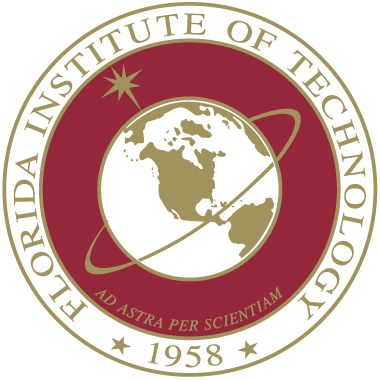Academics
Florida Institute of Technology is a private, four-year technical research university located in Melbourne, Fla. It offers 75 bachelor’s degree programs, 8 associate’s degrees, 85 master’s degrees, and 23 programs of doctoral studies. The institute enrolls a total of 8,985 students from all 50 states and more than 100 countries, with 4,146 students enrolled as full-time online students.
Florida Tech was founded in 1958 as Brevard Engineering College with the intention of providing advanced educational opportunities to employees in the United States space program, and it still maintains a strong core of engineering, science, and aeronautics offerings. Degree programs in those colleges include aeronautical science, aerospace engineering, biochemistry, space sciences – astrobiology, ocean engineering, and meteorology. The institute also features colleges of business, psychology and liberal arts, and an online university offering criminal justice, accounting, and more.
Recent construction at the school includes a 2008 groundbreakings for the Scott Center for Autism Treatment, Ruth Funk Center for Textile Arts, and Harris Center for Science and Engineering, and the installation of the Ortega reflecting telescope, the largest research telescope in Florida. In 2011, the institute merged with the Brevard Art Museum and applied a $1 million gift to establish it as the Foosaner Art Museum. Also in 2011, the Panther Aquatic Center was completed on the main campus.
Florida Institute of Technology is accredited by the Commission on Colleges of the Southern Association of Colleges and Schools (SACS). In addition, the institute’s engineering programs are accredited by the Engineering Accreditation Commission of the Accreditation Board for Engineering and Technology (ABET). The computer science program is accredited by the Computer Science Accreditation Commission of the Computing Sciences Accreditation Board, and the chemistry program is accredited by the Committee on Professional Training of the American Chemical Society. Aeronautical Science and Aviation Management programs are accredited by the Council on Aviation Accreditation.
The institute also receives significant research funding, with $35,087,585 awarded in 2010. Projects include the National Science Foundation InStep Program, the Office of Naval Research Advanced Nontoxic Anti-Fouling Coatings Research, Phased Antenna- coupled Detector Arrays for THz and IR Imaging, Department of Homeland Security Detection of Heavily Shielded Nuclear Contraband, and National Institutes for Health Cell Cycle Assembly of Nucleoprotein Complexes.

